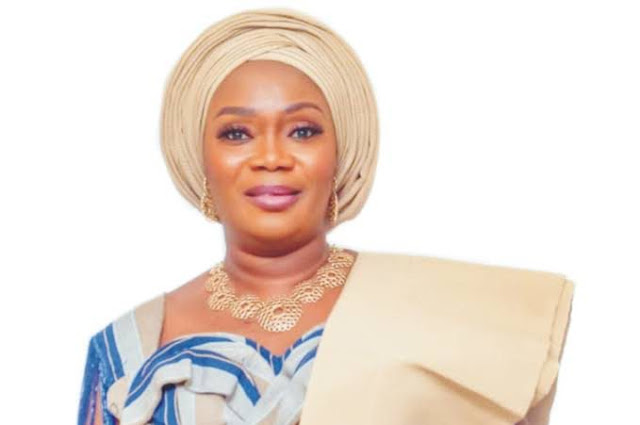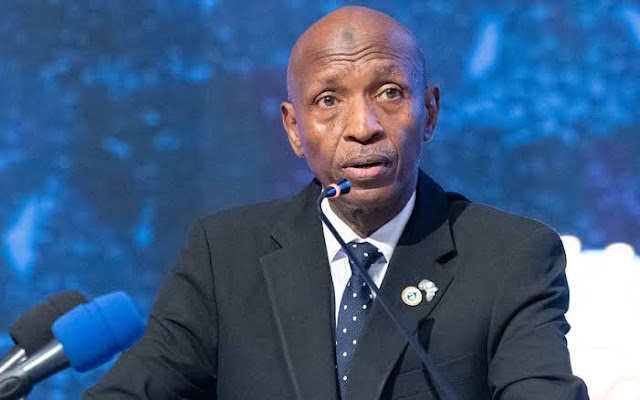Nollywood, Nigeria’s vibrant and globally recognized film industry, has long been a cultural cornerstone, producing not only entertainment but also larger-than-life personalities who shape public discourse. Among these luminaries is Jim Iyke, a name synonymous with charisma, talent, and a commanding screen presence. Known for his roles in blockbuster films and his entrepreneurial ventures, Jim Iyke has remained a household name in Nigeria and beyond. However, beyond his professional accomplishments, his personal life has often drawn significant attention, particularly his decision to remain unmarried following his divorce from his ex-wife. In a recent interview that has sparked widespread discussion, Jim Iyke opened up about his reasons for choosing not to remarry, shedding light on his priorities, values, and outlook on life after divorce. This article delves deeply into his revelations, exploring the broader implications of his stance, the cultural context of marriage and divorce in Nigeria, and the personal journey that has led one of Nollywood’s biggest stars to this crossroads.
The Revelation: Jim Iyke’s Stance on Remarriage
In a candid conversation that has since gone viral, Jim Iyke, whose real name is James Ikechukwu Esomugha, shared his perspective on why remarriage is not in his plans following the dissolution of his marriage. The actor, known for his forthrightness, explained that his decision is rooted in a desire to focus on his personal growth and his responsibilities as a father. “My son is my priority,” Iyke stated, emphasizing that his role as a father to his child takes precedence over any romantic or marital aspirations at this stage of his life. This statement, while simple on the surface, carries profound weight, reflecting a shift in priorities that resonates with many who have navigated the complexities of modern relationships.
Iyke’s marriage, which ended in divorce, was a private affair, and details about the union and its dissolution have been kept largely out of the public eye. However, in the interview, he provided rare insight into his post-divorce mindset. He described the emotional and psychological toll of the divorce, acknowledging that it was a challenging chapter in his life. Yet, rather than framing it as a failure, Iyke views the experience as a transformative moment that has shaped his current outlook. “I’ve been through a lot,” he said, “and I’ve come to realize that my happiness and my son’s well-being are what matter most. I don’t see remarriage as a necessity to achieve that.”
This perspective challenges conventional expectations, particularly in a society where marriage is often seen as a cornerstone of personal fulfillment. Iyke’s decision to prioritize his son and personal peace over societal pressures to remarry speaks to a broader shift in how individuals define success and happiness in the modern era. To fully understand the significance of his stance, it’s essential to explore the cultural and personal contexts that frame his decision.
Marriage and Divorce in the Nigerian Context
In Nigeria, marriage is more than a union between two individuals—it is a cultural institution steeped in tradition, family expectations, and societal validation. From elaborate weddings that showcase wealth and status to the communal involvement of extended families, marriage is often seen as a rite of passage and a marker of adulthood. For men, particularly in Nigeria’s patriarchal society, marriage is frequently tied to notions of stability, legacy, and social standing. Divorce, on the other hand, carries a significant stigma, especially for public figures like Jim Iyke, whose personal lives are subject to intense scrutiny.
The Nigerian entertainment industry, particularly Nollywood, amplifies these dynamics. Celebrities are often held to idealized standards, with their relationships dissected by fans, media, and social commentators. When a high-profile marriage ends, the fallout can be particularly intense, with public opinion often split between sympathy and judgment. Jim Iyke’s divorce, though kept relatively private, inevitably sparked curiosity and speculation. His decision to speak openly about his choice not to remarry is a bold move in a cultural landscape where such choices are often met with raised eyebrows.
Divorce rates in Nigeria have been rising in recent years, reflecting global trends as well as changing social dynamics within the country. Factors such as increased financial independence for women, evolving gender roles, and greater awareness of individual rights have contributed to a growing acceptance of divorce, particularly in urban areas. However, the stigma persists, especially in more traditional communities. For men like Iyke, who are in the public eye, navigating this terrain requires a delicate balance of personal conviction and public perception.
Iyke’s emphasis on his son as his primary focus also highlights another cultural shift: the evolving role of fathers in Nigerian society. Traditionally, fatherhood in Nigeria has been associated with providing financial support and maintaining authority within the family. However, modern notions of fatherhood increasingly emphasize emotional involvement and active parenting. Iyke’s commitment to his son reflects this shift, signaling a departure from traditional expectations and a redefinition of what it means to be a man and a father in contemporary Nigeria.
Jim Iyke’s Journey: From Nollywood Star to Reflective Father
To fully appreciate Jim Iyke’s stance on remarriage, it’s worth tracing his journey from his early days in Nollywood to the introspective figure he presents today. Born on September 25, 1976, in Libreville, Gabon, to Nigerian parents, Iyke grew up in a family that valued education and ambition. He studied banking and finance at the University of Jos, but his passion for acting led him to Nollywood, where he quickly rose to prominence in the early 2000s. With his rugged good looks, intense screen presence, and versatility, Iyke became one of the industry’s leading men, starring in films that ranged from romantic dramas to action-packed thrillers.
His career, however, has not been without controversy. Known for his outspoken nature, Iyke has often found himself at the center of media storms, whether due to rumored feuds, bold fashion choices, or his ventures outside acting, such as his music career and entrepreneurial pursuits. Despite these challenges, he has maintained a loyal fan base and a reputation as a trailblazer in Nollywood. His ability to reinvent himself—whether through his roles, his style, or his business ventures—has kept him relevant in an industry that is constantly evolving.
Iyke’s personal life, however, has often been a source of intrigue. His relationships, particularly his marriage, have been subject to speculation, with fans and media eager to uncover details. While Iyke has been notoriously private about his personal affairs, his recent interview marks a departure from this reticence. By addressing his divorce and his decision not to remarry, he is taking control of the narrative, offering a glimpse into the man behind the celebrity persona.
The divorce itself, while not detailed in the interview, appears to have been a pivotal moment for Iyke. Divorce is never easy, particularly for someone in the public eye, where personal struggles are magnified by media scrutiny. Iyke’s acknowledgment of the emotional weight of the experience humanizes him, reminding fans that even larger-than-life figures face the same challenges as ordinary individuals. His focus on personal growth and fatherhood suggests a man who has taken stock of his life and emerged with a clearer sense of purpose.
Fatherhood as a Priority: Redefining Masculinity
At the heart of Jim Iyke’s decision not to remarry is his commitment to his son. This focus on fatherhood is not only a personal choice but also a reflection of broader societal changes. In many cultures, including Nigeria’s, men have historically been defined by their ability to provide and protect. Emotional involvement, while valued, was often secondary to these roles. However, as societal norms evolve, men are increasingly embracing active, hands-on parenting as a core aspect of their identity.
Iyke’s statement that his son is his priority underscores this shift. By choosing to focus on his child rather than seeking a new romantic partnership, he is challenging the notion that a man’s worth is tied to his marital status. This perspective is particularly significant in the context of Nigerian celebrity culture, where public figures are often expected to project an image of perfection, including a stable family life. Iyke’s willingness to prioritize his son over societal expectations is a powerful statement about what it means to be a modern father.
Fatherhood, for Iyke, appears to be a source of grounding and purpose. In the interview, he spoke with evident pride about his role in his son’s life, emphasizing the importance of being present and engaged. This focus on fatherhood also resonates with a growing number of men who are redefining masculinity to include emotional vulnerability and active caregiving. By placing his son at the center of his life, Iyke is not only making a personal choice but also contributing to a broader cultural conversation about the evolving roles of men in family life.
The Broader Implications: Marriage, Individualism, and Societal Expectations
Jim Iyke’s decision not to remarry raises important questions about the institution of marriage and its place in modern society. In Nigeria, as in many parts of the world, marriage is often seen as a prerequisite for happiness and social acceptance. For men, in particular, remarriage after divorce is frequently viewed as a way to “move on” and reclaim stability. Iyke’s rejection of this narrative challenges these assumptions, suggesting that happiness and fulfillment can be found outside the confines of marriage.
This stance aligns with a growing global trend toward individualism, where personal growth and self-defined priorities take precedence over societal expectations. In the past, marriage was often seen as a non-negotiable aspect of adulthood, particularly in collectivist societies like Nigeria’s, where community and family play central roles. However, as individuals gain more agency over their lives, particularly in urban and cosmopolitan settings, attitudes toward marriage are shifting. For some, like Iyke, the decision to remain unmarried is a deliberate choice to focus on personal goals, relationships with children, or other forms of fulfillment.
This shift is not without its challenges. In a society where marriage is deeply ingrained as a cultural norm, choosing to remain single—especially after a high-profile divorce—can invite judgment and speculation. For Iyke, navigating this terrain as a public figure requires a level of resilience and self-assurance. His willingness to speak openly about his choice reflects a confidence in his path and a desire to challenge outdated norms.
Moreover, Iyke’s decision highlights the evolving nature of relationships in the 21st century. As divorce becomes more common and societal attitudes toward it soften, individuals are increasingly free to define their lives on their own terms. For some, this means remarrying and building new families; for others, like Iyke, it means embracing a different kind of life, one centered on personal growth and meaningful connections outside of romantic partnerships.
The Role of Public Perception and Media
As a celebrity, Jim Iyke’s personal choices are inevitably subject to public scrutiny. The Nigerian media, known for its voracious appetite for celebrity news, has long followed Iyke’s career and personal life with keen interest. His decision to address his divorce and stance on remarriage in an interview is a strategic move, allowing him to shape the narrative rather than leaving it to speculation and gossip.
The media’s role in shaping public perception cannot be overstated. In Nigeria, where social media platforms like Twitter (now X) and Instagram amplify celebrity stories, a single interview can spark a firestorm of reactions. Iyke’s comments have already generated significant buzz, with fans and commentators weighing in on his decision. Some have praised his focus on fatherhood and personal growth, while others have questioned whether his stance reflects a broader disillusionment with marriage.
This dichotomy reflects the polarized nature of public discourse around celebrity personal lives. On one hand, fans admire celebrities who are authentic and relatable, sharing their struggles and triumphs. On the other hand, the public often holds celebrities to unrealistic standards, expecting them to embody idealized versions of success and happiness. Iyke’s candidness about his divorce and his choice not to remarry bridges this gap, offering a glimpse into the complexities of his life while asserting his right to define his own path.
The media’s role also extends to shaping cultural attitudes toward marriage and divorce. By giving a platform to figures like Iyke, who challenge traditional norms, the media can contribute to a broader conversation about what constitutes a fulfilling life. This is particularly important in a society like Nigeria’s, where cultural expectations around marriage and family remain deeply entrenched.
The Nollywood Context: Celebrity Culture and Personal Choices
Nollywood, as an industry, is a microcosm of Nigerian society, reflecting its values, tensions, and aspirations. The personal lives of Nollywood stars are often as much a part of the industry’s narrative as the films themselves. From lavish weddings to publicized breakups, the personal milestones of actors like Jim Iyke are woven into the fabric of Nollywood’s cultural impact.
In this context, Iyke’s decision to remain unmarried is particularly noteworthy. Nollywood has long celebrated the image of the successful, married star, with many actors and actresses cultivating public personas that emphasize family and stability. Iyke’s departure from this script challenges the industry’s norms, suggesting that there is more than one way to live a meaningful life as a public figure.
This stance also has implications for Nollywood’s younger generation of actors, who are navigating a rapidly changing industry. As Nollywood grows in global influence, with streaming platforms like Netflix and Amazon Prime showcasing Nigerian films to international audiences, the pressure on actors to conform to certain ideals is evolving. Iyke’s willingness to embrace his individuality and prioritize his son over societal expectations sets an example for younger stars who may feel torn between personal authenticity and public image.
Furthermore, Iyke’s story underscores the resilience required to thrive in an industry as competitive and scrutinized as Nollywood. His ability to weather personal and professional challenges— from divorce to media controversies—demonstrates a strength of character that has endeared him to fans and peers alike. By sharing his perspective on remarriage, he is not only asserting his independence but also contributing to a broader dialogue about the intersection of celebrity, personal choice, and cultural expectations.
The Global Perspective: Parallels and Contrasts
While Jim Iyke’s decision is rooted in his personal experiences and the Nigerian cultural context, it also resonates with global trends around marriage and divorce. Across the world, attitudes toward marriage are shifting, with more individuals choosing to remain single or delay marriage in favor of personal and professional pursuits. In Western countries, for example, the rise of the “single by choice” movement reflects a growing acceptance of diverse life paths.
However, the Nigerian context adds a layer of complexity to this trend. In many Western societies, individualism is a dominant cultural value, and choosing not to marry is often seen as a valid personal choice. In Nigeria, where collectivism and family ties remain central, such decisions can be more contentious. Iyke’s stance, therefore, is both a reflection of global trends and a challenge to local norms, highlighting the tension between individual agency and cultural expectations.
This tension is particularly pronounced for public figures, whose choices are amplified by their visibility. In Hollywood, for example, celebrities like George Clooney and Oprah Winfrey have famously delayed or eschewed marriage, sparking discussions about the role of romantic partnerships in a fulfilling life. Iyke’s decision aligns with this narrative, positioning him as a figure who is both a product of his cultural context and a participant in a global conversation about modern relationships.
Looking Forward: Jim Iyke’s Legacy and Influence
As Jim Iyke continues to navigate his personal and professional journey, his decision not to remarry will likely remain a topic of discussion. For fans, it is a reminder of his humanity—a man who, despite his fame, grapples with the same questions of purpose and fulfillment as anyone else. For the broader public, it is an opportunity to reflect on the evolving nature of marriage, family, and personal happiness in a rapidly changing world.
Iyke’s legacy, both as an actor and as a public figure, is one of resilience, reinvention, and authenticity. His willingness to speak openly about his priorities and choices sets him apart in an industry where image often overshadows substance. By prioritizing his son and his personal growth, he is redefining what it means to be a successful man in the public eye.
In the years to come, Iyke’s influence will likely extend beyond his film roles. As a cultural figure, he has the power to shape conversations about fatherhood, masculinity, and the pursuit of happiness. His decision not to remarry is not just a personal choice but a statement about the freedom to define one’s own path, regardless of societal expectations.
Conclusion
Jim Iyke’s revelation about his decision not to remarry after his divorce offers a compelling glimpse into the mind of one of Nollywood’s most enduring stars. By prioritizing his son and his personal growth, he is challenging cultural norms and sparking a broader conversation about marriage, divorce, and the pursuit of happiness. In a society where marriage is often seen as a cornerstone of success, Iyke’s stance is both bold and thought-provoking, reflecting a shift toward individualism and self-defined fulfillment.
His story is a reminder that personal choices, particularly those made by public figures, have the power to influence cultural attitudes and inspire others to reflect on their own priorities. As Nigeria and the world continue to navigate the complexities of modern relationships, Jim Iyke’s journey serves as a beacon of authenticity, resilience, and the courage to live life on one’s own terms.






